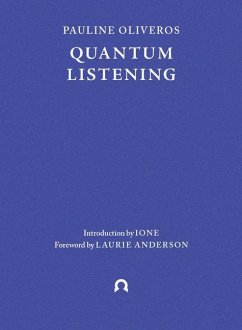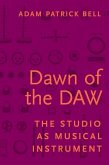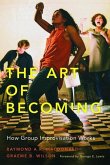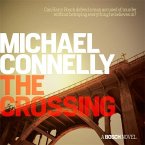What is the difference between hearing and listening? When do you stop hearing the sound? When does memory begin? Is sound intelligent? Does sound have consciousness? Beginning in the 1960s, musician and composer Pauline Oliveros started experimenting with bringing together meditation, political activism and experimental music, eventually creating Deep Listening - a practice that she said was for "humanitarian purposes; specifically healing". Quantum Listening is a manifesto for listening as activism. Quantum listening is listening to listening in order to attune to our bodies, the earth and one another in an increasingly loud and noisy world. Through simple listening exercises and eloquent writing, Oliveros shows how Deep Listening is the foundation for a radically transformed social matrix in which compassion and love are the core motivating principles to guide creative decision-making and our actions in the world.







